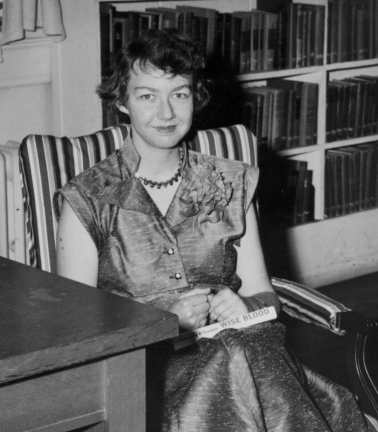Flannery O’Connor (Mary Flannery O'Connor)

Regarding her emphasis of the grotesque, Flannery O’Connor said: “anything that comes out of the South is going to be called grotesque by the northern reader, unless it is grotesque, in which case it is going to be called realistic.” Her texts usually take place in the South and revolve around morally flawed characters, while the issue of race often appears in the background. Most of her works feature disturbing elements, though she did not like to be characterized as cynical. “I am mighty tired of reading reviews that call A Good Man brutal and sarcastic,” she wrote. “The stories are hard but they are hard because there is nothing harder or less sentimental than Christian realism. …When I see these stories described as horror stories I am always amused because the reviewer always has hold of the wrong horror.” Flannery O’Connor’s two novels are Wise Blood (1952) and The Violent Bear It Away (1960). She also published two books of short stories: A Good Man Is Hard to Find (1955) and Everything That Rises Must Converge (published posthumously in 1965). Many of O’Connor’s short stories have been published in major anthologies, including The Best American Short Stories and Prize Stories.
Flannery O’Connor felt deeply informed by the sacramental and by the Thomist notion that the created world is charged with God. Yet she would not write apologetic fiction of the kind prevalent in the Catholic literature of the time, explaining that a writer’s meaning must be evident in his or her fiction without didacticism. She wrote ironic, subtly allegorical fiction about deceptively backward Southern characters, usually fundamentalist Protestants, who undergo transformations of character that, to her thinking, brought them closer to the Catholic mind. The transformation is often accomplished through pain, violence, and ludicrous behavior in the pursuit of the holy. However grotesque the setting, she tried to portray her characters as open to the touch of divine grace. This ruled out a sentimental understanding of the stories’ violence, as of her own illness. She wrote: “Grace changes us and the change is painful.” She also had a deeply sardonic sense of humor, often based in the disparity between her characters’ limited perceptions and the awesome fate awaiting them. Another source of humor is frequently found in the attempt of well-meaning liberals to cope with the rural South on their own terms. Flannery O’Connor used such characters’ inability to come to terms with race, poverty, and fundamentalism, other than in sentimental illusions, as an example of the failure of the secular world in the twentieth century.
However, several stories reveal that Flannery O’Connor was familiar with some of the most sensitive contemporary issues that her liberal and fundamentalist characters might encounter. She addressed the Holocaust in her story “The Displaced Person” and racial integration in “Everything That Rises Must Converge.” Her fiction often included references to the problem of race in the South; occasionally, racial issues come to the forefront, as in “The Artificial Nigger,” “Everything that Rises Must Converge,” and “Judgment Day,” her last short story and a drastically rewritten version of her first published story, “The Geranium.” Fragments exist of an unfinished novel tentatively titled Why Do the Heathen Rage? that draws from several of her short stories, including “Why Do the Heathen Rage?,” “The Enduring Chill,” and “The Partridge Festival.”
Born
- March, 25, 1925
- USA
- Savannah, Georgia
Died
- August, 03, 1964
- USA
- Milledgeville, Georgia
Cemetery
- Memory Hill Cemetery
- Milledgeville, Georgia
- USA



